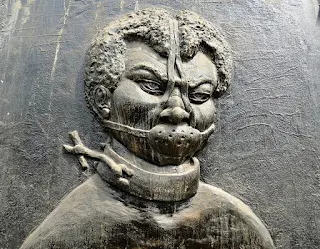Tippu Tip Notorious African Slave Trader
Arab Tippu Tip Notorious African Slave Trader
Explore and Understand Africa Through Her Food and Culture
Rev. Dr. David Livingstone was a reverend, doctor, Scottish explorer and Victorian missionary for Britain who was the first European to cross the width of southern Africa. Livingstone opposed the slave trade after witnessing its horrors firsthand in Africa. Tippu Tip and Livingstone paths crossed while Livingstone was searching for the source of the Nile River.
Arab slave trade is a fact of history
Hamid bin Mahamed bin Juma Borajib best known as Tippu Tip was the most notorious Arab slave trader. In the 1840 Tippu Tip was born in Zanzibar and at a very young age, he became involved in the internal slave trade and ivory trading business. Most of the thousands of slaves taken by Tippu Tip were used to carry ivory to the coast and supplies back to the interior.

|
| Tippu Tip |
Before Tippu Tip the Ivory Coast, Grain Coast, Gold Coast, and the Slave Coast were a thriving industry
Centuries before Tippu Tip the Arab slave trader began his money-making slave trading and ivory exporting businesses, French and Portuguese explorers in the early 16th century divided the countries of the west coast Africa into four coasts according to the trade economy, the Ivory Coast, Grain Coast or Pepper Coast, Gold Coast, and Slave Coast.
Ivory Coast
The French named the Côte d'Ivoire literally means Ivory Coast. Côte d'Ivoire was unofficially known as Costa do Marfim by the Portuguese, côte des dents or the teeth coast and the Ivory Coast reflecting the trade in ivory.
Grain CoastThe Grain Coast, Malaguetta Coast or Pepper Coast is the former name of a part of the Atlantic coast that is roughly identical with the coast of modern Liberia.
Gold CoastThe Gold Coast was the former unofficial name for present-day Ghana in West Africa. The Gold Coast is so-called because it was an important source of gold for the British, Portuguese, and Dutch traders.
Slave CoastThe Slave Coast is a historical name formerly used for parts of coastal West Africa from present-day Nigeria, Togo, and along the Bight of Benin. The Slave Coast was a major source of African slaves during the transatlantic slave trade from the16th to 19th century largely by the British, French, Portuguese, and Spanish.
Berlin Conference Outcome and Effects on AfricaThe Berlin Conference did not initiate European colonization of Africa. Following the close of the conference, European powers expanded their claims in Africa such that by 1900, European states had claimed nearly 90 percent of African territory.
The Berlin Conference is also known as the Congo Conference meet Nov. 15, 1884, to Feb. 26, 1885 for a series of negotiations Berlin Germany. The major European nations met to decide to carve up Africa based on their needs not knowing or caring the trauma they were inflicting on the people of Africa. Africa suffered and is still suffering from ethnic division.
Numerous tribes were cut off from their relatives in a neighboring country. Similarly, numerous Africans were forcefully separated from fellow Africans by the way of slavery. The coming together of Africa is a healing process from which Africans will benefit, relatives and long separated ethnic groups will be united.
Together we build awareness that boost harmony, education, and success, below are more links to articles you will find thought provoking.
- African Country Names Your Saying Wrong
- What do Waist Beads Symbolize in Africa?
- About African Healers and Witchdoctors
- Hurricanes are Angry African Ancestors
- Highest Temperature and Lowest Temperature in Africa
- About African Night Running










